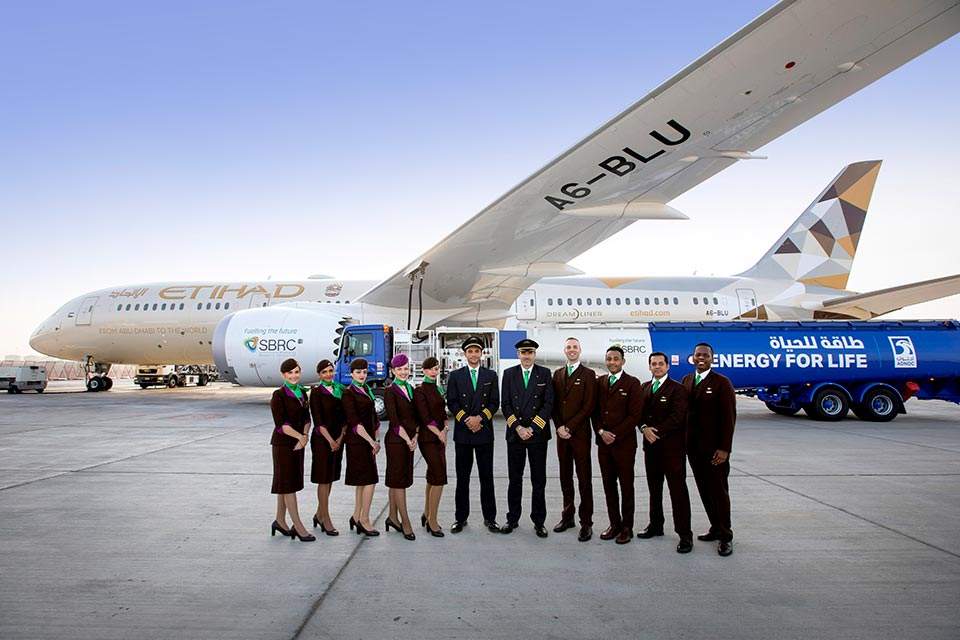The airline has completed the first commercial flight of a Boeing 787 using sustainable fuel produced in the UAE.
An Etihad Airways Boeing 787 powered by GE’s GEnx-1B engines has made the first commericial flight using sustainable fuel produced in the United Arab Emeriates. The milestone flight, from Abu Dhabi to Amsterdam, was announced by the Sustainable Bioenergy Research Consortium (SBRC), a non-profit entity established by Masdar Institute that is part of Khalifa University of Science and Technology.
The SBRC partners (Khalifa University, Etihad Airways, Boeing, ADNOC, Safran, GE and BAUER Resources) have been working together to prove the concept of a comprehensive value chain that is centred around the Seawater Energy and Agriculture System (SEAS). This is described by the SBRC as a synergistic industrial platform that supports the aviation sector, the oil and gas industry, food production and the creation of a new agricultural alternative in the UAE.
Sustainable fuel for the flight was derived from oil in Salicornia plants, which were grown on the two-hectare SEAS farm in Masdar City. The SEAS is the world’s first desert ecosystem designed to produce fuel and food in saltwater. The flight marks the first time that a flight has been operated on fuel derived from plants grown in saltwater.
The biofuel is blended directly with jet fuel and does not require any modifications to aircraft, engines or airport fuelling delivery systems. The SBRC says the initiative has the potential to become an important new option for sustainable aviation fuel in the future.
Operated by the SBRC, the SEAS pilot facility became operational in March 2016. Salt-tolerant halophyte plants that thrive in desert conditions and do not require fresh water or arable land to grow are nurtured there.
It is estimated that around 160,000 passenger flights have flown on a blend of sustainable and traditional jet fuel since the first biofuels were certified for commercial use in 2011.

